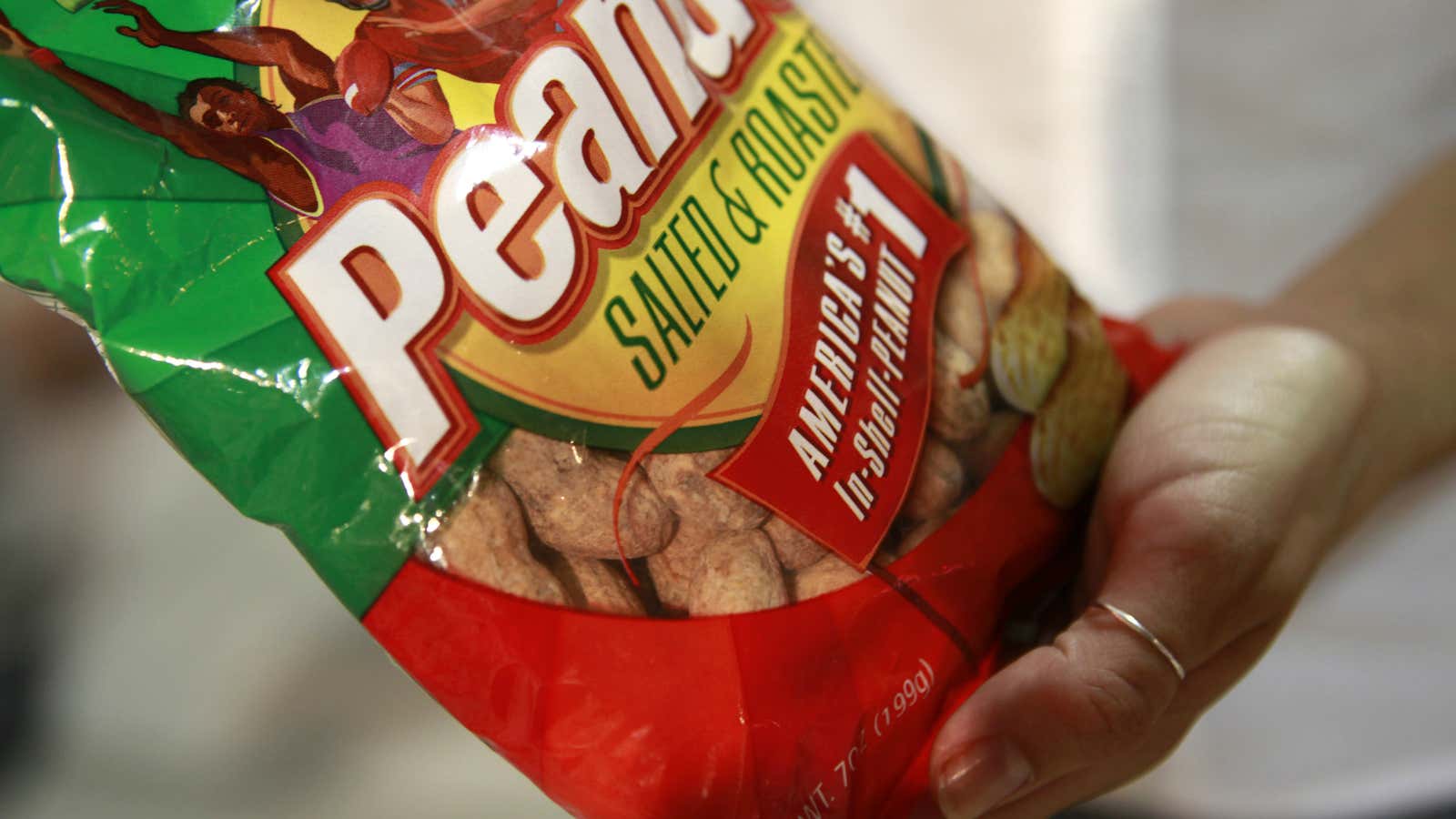New mothers who opt to breastfeed should consider snacking on peanuts if they want to reduce the chance of their child developing a peanut allergy, according to a new study out of Canada.
In a study published this September in the Journal of Allergy and Clinical Immunology, researchers randomized families into intervention or control groups, then collected data on breastfeeding and maternal and infant peanut consumption through questionnaires. They then monitored the 545 children involved until age seven, when they were tested for the allergy. The lowest incidence of a peanut allergy (1.7%) was found in children whose mothers ate peanuts while breastfeeding and exposed them to peanut foods at an early age, according to the study. The research was conducted following a secondary review of a previous 1995 study on asthma prevention.
It’s the latest piece of evidence showing that when parents expose children to low levels of certain foods at a young age, it can help a child’s immune system develop a tolerance for those foods. In particular, there is a growing body of research suggesting that children who consume trace amounts of peanuts while breastfeeding, and who have direct exposure during infancy, have a reduced risk of being allergic to peanuts. That matters, since for decades peanut allergies have been a top cause of anaphylaxis, which within seconds can trigger the immune system to release a variety of chemicals that can send a person into shock, among other things. It’s estimated that more than 200,000 people in the US require emergency care related to an anaphylaxis reaction to an allergen, according to Food Allergy Research and Education. a nonprofit organization dedicated to the issue.
In the US, national health guidelines were changed in Jan. 2017 to recommend that parents begin feeding their children peanut-containing puréed food before they are six months old, and even younger if the child is allergy-prone and their doctor says it’s safe. This was a reversal from previous government advice that told parents to not give allergy-prone children peanuts until they were 3 years old. Other countries go even further: In the UK, the government is considering adopting a policy warning parents that the “deliberate exclusion of specific allergenic foods may increase the risk of allergy,” according to the UK Food Standards Agency’s Committee on Toxicity (pdf).
Scientists are also working on ways to help those children who didn’t get the protective benefit of early exposure. In August, researchers in Australia published work showing that children treated with an experimental immunotherapy to try and reprogram their immune systems to tolerate peanuts. Early signs show that work has yielded some success.
